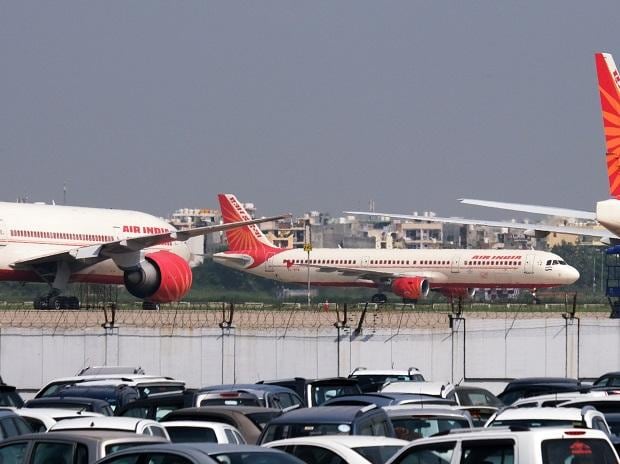[ad_1]
Delhi Police on Wednesday registered an FIR and formed several teams to nab a flier accused of drunken misbehaviour onboard an Air India flight from New York to Delhi.
Air India, meanwhile, initiated steps to put the male passenger on a no-fly list after he urinated on a woman co-passenger on the flight on November 26.
An internal committee has also been constituted to “probe the lapses on part of Air India’s crew and address the deficiencies that delayed quick redressal of the situation,” the airline said.
As a first step, the Tata group-owned airline has banned the passenger for 30 days –the maximum it is permitted to do unilaterally – and has reported the matter to the Directorate General of Civil Aviation (DGCA) for further action.
The DGCA had sought a report from the airline and said it would take action against those found negligent. The National Commission for Women took suo moto cognisance of the incident and asked the Delhi police and the airline to submit an action taken report.
While the identity of the accused has not been disclosed by either the airline or the police, sources said he is in his 50s and a resident of Mumbai.
The incident occurred on Air India’s New York-Delhi flight on November 26, but the crew did not report the incident. The airline management was forced into action after a media report recounted the woman’s ordeal on Wednesday.
According to the report, the man, who was drunk, walked over to the victim’s seat in the business class just after lunch when the lights had been dimmed, and urinated on her.
The Directorate General of Civil Aviation has laid down norms to deal with unruly passengers. Airlines are required to form their own standard operating procedures and train their personnel on ways to deal with them.
According to the DGCA rule, unruly behaviour has been categorised under three levels. Level 1 includes physical gestures, verbal harassment, unruly inebriation. Level 2 includes physically abusive behaviour like pushing, hitting, kicking or sexual harassment. Level 3 incidents include life-threatening behaviour such as causing damage to aircraft operating systems, murderous assault etc.
According to the procedure, the pilots are required to relay the onboard situation to the airline’s control room. A diversion too can be carried out, if required, and upon landing a police case can be lodged.
“Air India has taken a very serious view of the incident, where a passenger behaved in an unacceptable and undignified manner on the New York-Delhi flight that caused extreme distress to a fellow passenger,” the airline said in a statement on Wednesday. “We are also in regular contact with the aggrieved passenger and her family during the investigation and reporting process,” Air India added.
The senior citizen woman had complained to Air India Chairman N Chandrasekaran that she had to sit in a soiled seat during the journey and was not offered an alternate seat in first class. On arrival in Delhi, she received no support from the ground staff.
A Delhi police official said it had received a complaint from the airline on December 28 and a case had been registered under various sections of the Indian Penal Code.
Norms also require an airline to constitute a three-member independent committee to decide on the issue of putting the unruly passenger on a no-fly list within 30 days. The airline has to maintain a database of unruly passengers and inform DGCA and other airlines.
“The DGCA rule on a no-fly list is only prescriptive in nature and serves as a guidance to the committee members. The committee can take its own call based on the facts submitted before it,” said Gautam Acharya, former general counsel of Jet Airways.
Jet Airways was the first airline to put a passenger named Birju Salla on a no-fly list in 2018 for creating a hijack scare on an Ahmedabad-Mumbai flight.
With inputs from PTI
[ad_2]
Source link



